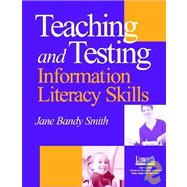|
ix | ||||
| Foreword | xi | ||||
| Preface | xiii | ||||
| Acknowledgments | xv | ||||
| Introduction | xvii | ||||
| The Book's Purpose | xvii | ||||
| Style of Writing | xviii | ||||
| The Book's Contents | xviii | ||||
| About the Author | xix | ||||
|
1 | (14) | |||
|
4 | (1) | |||
|
5 | (2) | |||
|
7 | (2) | |||
|
9 | (1) | |||
|
9 | (2) | |||
|
11 | (4) | |||
|
15 | (20) | |||
|
15 | (2) | |||
|
17 | (1) | |||
|
17 | (6) | |||
|
17 | (3) | |||
|
20 | (1) | |||
|
21 | (1) | |||
|
22 | (1) | |||
|
23 | (1) | |||
|
23 | (2) | |||
|
25 | (6) | |||
|
27 | (1) | |||
|
28 | (1) | |||
|
29 | (1) | |||
|
30 | (1) | |||
|
31 | (1) | |||
|
32 | (3) | |||
|
35 | (14) | |||
|
35 | (1) | |||
|
36 | (2) | |||
|
38 | (1) | |||
|
39 | (1) | |||
|
40 | (1) | |||
|
41 | (3) | |||
|
41 | (1) | |||
|
42 | (1) | |||
|
42 | (1) | |||
|
42 | (1) | |||
|
43 | (1) | |||
|
43 | (1) | |||
|
43 | (1) | |||
|
43 | (1) | |||
|
44 | (3) | |||
|
44 | (1) | |||
|
44 | (1) | |||
|
45 | (1) | |||
|
46 | (1) | |||
|
47 | (2) | |||
|
49 | (10) | |||
|
50 | (2) | |||
|
50 | (1) | |||
|
51 | (1) | |||
|
51 | (1) | |||
|
52 | (1) | |||
|
53 | (2) | |||
|
55 | (2) | |||
|
57 | (2) | |||
|
59 | (16) | |||
|
60 | (1) | |||
|
61 | (5) | |||
|
61 | (1) | |||
|
62 | (1) | |||
|
63 | (1) | |||
|
64 | (1) | |||
|
65 | (1) | |||
|
65 | (1) | |||
|
66 | (2) | |||
|
68 | (1) | |||
|
68 | (2) | |||
|
70 | (2) | |||
|
71 | (1) | |||
|
72 | (3) | |||
|
75 | (14) | |||
|
76 | (1) | |||
|
76 | (4) | |||
|
77 | (1) | |||
|
78 | (2) | |||
|
80 | (1) | |||
|
80 | (1) | |||
|
81 | (5) | |||
|
82 | (1) | |||
|
83 | (1) | |||
|
83 | (1) | |||
|
83 | (1) | |||
|
83 | (1) | |||
|
84 | (1) | |||
|
85 | (1) | |||
|
86 | (1) | |||
|
86 | (1) | |||
|
87 | (2) | |||
|
89 | (12) | |||
|
90 | (1) | |||
|
90 | (3) | |||
|
91 | (1) | |||
|
92 | (1) | |||
|
92 | (1) | |||
|
93 | (2) | |||
|
95 | (1) | |||
|
96 | (2) | |||
|
97 | (1) | |||
|
98 | (1) | |||
|
98 | (1) | |||
|
99 | (2) | |||
|
101 | (16) | |||
|
102 | (4) | |||
|
102 | (1) | |||
|
103 | (1) | |||
|
104 | (1) | |||
|
104 | (1) | |||
|
105 | (1) | |||
|
105 | (1) | |||
|
106 | (1) | |||
|
106 | (1) | |||
|
106 | (1) | |||
|
107 | (1) | |||
|
108 | (1) | |||
|
109 | (1) | |||
|
110 | (1) | |||
|
111 | (1) | |||
|
112 | (1) | |||
|
113 | (1) | |||
|
114 | (1) | |||
|
115 | (2) | |||
|
117 | (20) | |||
|
119 | (10) | |||
|
119 | (1) | |||
|
119 | (1) | |||
|
120 | (1) | |||
|
121 | (3) | |||
|
124 | (1) | |||
|
124 | (3) | |||
|
127 | (2) | |||
|
129 | (8) | |||
|
129 | (1) | |||
|
129 | (1) | |||
|
129 | (1) | |||
|
130 | (2) | |||
|
132 | (2) | |||
|
134 | (3) | |||
|
137 | (1) | |||
|
137 | (1) | |||
|
137 |








